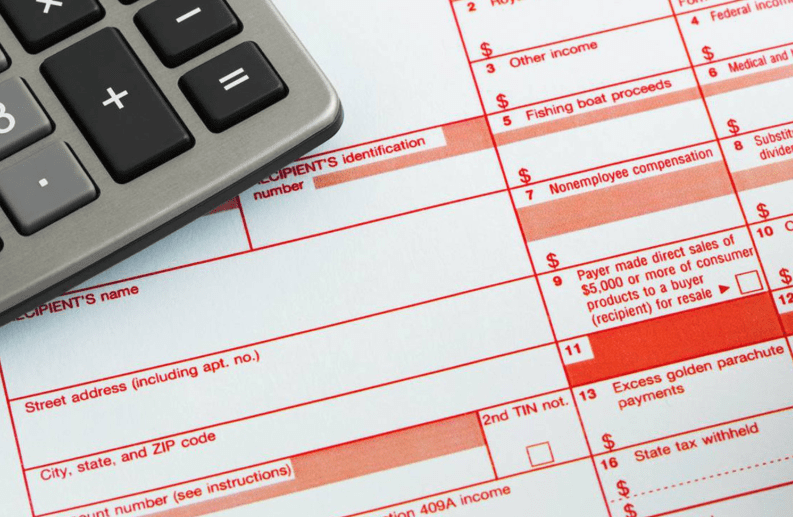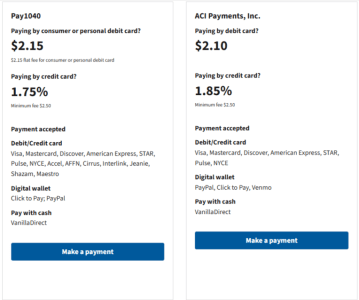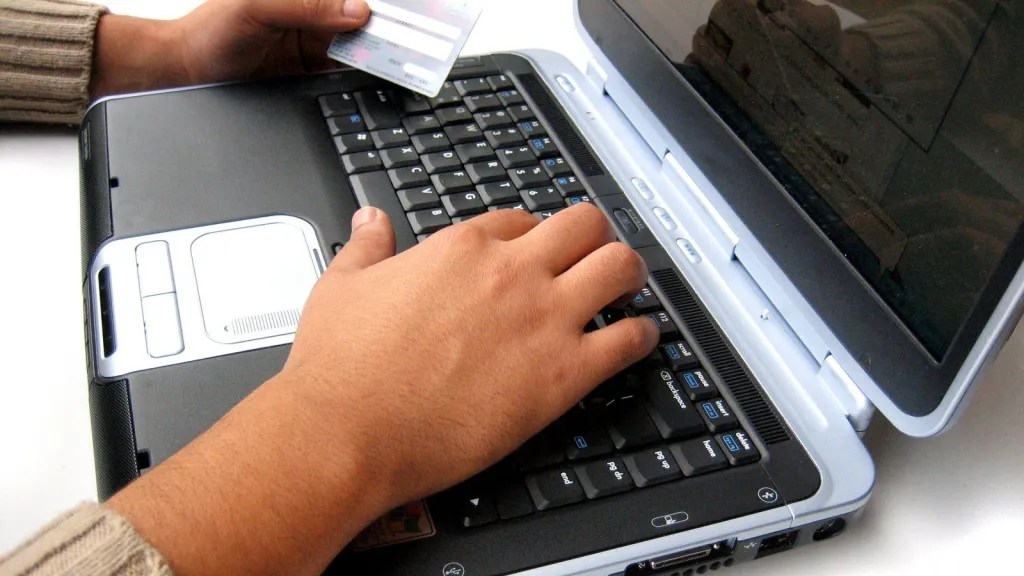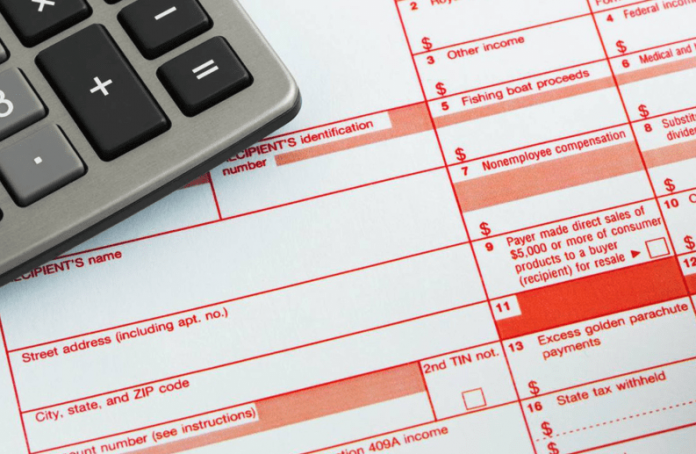
Guide: How to Pay Federal Taxes with a Credit Card
🔃 2025 Update: Happy New Year everyone, and here’s a small gift if you need to get some spending done on your credit cards, and pay taxes.
Pay1040 now charges the lowest ever fee of 1.75% of the tax payment amount when using consumer credit cards. However, payments made with business credit cards, American Express consumer cards and PayPal, will be charged a much higher fee of 2.89%.
ACI is also charging a lower fee of 1.85%, while PayUSAtax is currently not working.
The deadline for 2024 last quarterly estimated payment is Jan. 15, 2025.
Intro
The Internal Revenue Service (IRS) started accepting credit cards for tax payments back in 1999, as a way to encourage more people to file tax returns electronically. Taxpayers are charged charged a fluctuating ”convenience fee” to use credit cards, debit cards or PayPal.
The IRS uses third party payment processors for these transactions. For a long time there have been three options, Pay1040, ACI Payments, and PayUSAtax. The latter is no longer available, leaving just two processors.
Paying your federal taxes (or even state taxes) with a credit card is only a good idea if you can pay your credit card balance in full. Credit cards charge very high interest rates, so carrying a large balance can be very costly. Even when paying your card in full, you would still need to earn rewards or a bonus in order to account for the processing fees that you will pay.
So let’s see how you can pay your federal taxes with a credit card and why you should?

Processing Fees for Federal Tax Payments
Paying your federal taxes with a credit card can be costly. Fees vary based on which payment processor you use, and sometimes even the card that you have.
Fees start from 1.75% for credit card payments and can go as high as 2.89%.
💳 ACI Payments, Inc.
- Debit card payments:
- $2.10 flat fee for consumer/personal debit cards.
- 2.95% ($2.50 minimum) for corporate debit cards.
- Credit card payments:
- Debit/credit cards accepted: Visa, Mastercard, Discover, American Express, STAR, Pulse, NYCE
- Digital wallets:
- PayPal:$1.85% ($2.50 minimum)
- Venmo: $1.85% ($2.50 minimum)
- Website: fed.acipayonline.com
💳 Pay1040
- Debit card payments:
- $2.15 flat fee for consumer/personal debit cards.
- 2.89% ($2.50 minimum) for corporate debit cards.
- Credit card payments: $1.75% to 2.89% ($2.50 minimum).
- $1.75% for most consumer/personal credit cads.
- $2.89% for personal American Express credit cads.
- $2.89% for most business credit cads.
- Debit/credit cards accepted: Visa, Mastercard, Discover, American Express, STAR, Pulse, NYCE, Accel, AFFN, Cirrus, Interlink, Jeanie, Shazam, Maestro
- Digital wallets:
- PayPal:$2.89% ($2.50 minimum)
- Website: www.pay1040.com
PayUSAtax
They are no longer processing federal tax payments on behalf of the IRS. If you need assistance with a payment made prior to 1/1/2025, contact support@payusatax.com.

Why Use a Credit Card to Pay Taxes?
Paying taxes with a credit card might seem unconventional, but it can offer several strategic benefits when done and managed wisely.
As you can see above, you will be charged a fee between 1.75% and 2.89% when paying your taxes with a credit card. That means a fee of $175 to $289 for a tax payment of $10,000.
So how does it make sense to pay these fees? There are two scenarios:
- Meet Spending Requirements for Signup Bonuses: If you’re trying to hit a spending threshold to earn a sign-up bonus on a new credit card, paying your taxes with the card could be an effective way to reach that target quickly. The processing fee is usually worth it, if you can’t easily spend the required amount elsewhere. Check out the best signup bonuses that are available this month.
- Earn Rewards and Cash Back: Many credit cards offer rewards such as points, miles, or cash back on purchases, including tax payments. Here are some cards that you can use to possibly make a small profit:
- Spend for Credit Card Perks/Benefits: Depending on your card’s benefits it could make sense to pay the processing fees even if your card doesn’t normally earn 2% cash back or more. Those cases include credit cards that offer elite status, free hotel nights or other perks such as the Southwest Companion Pass. These perks usually require you to spend a certain amount every year, or earn a certain amount of points.
- Convenient Payment Flexibility: Using a credit card allows you to pay your taxes immediately, even if you don’t have the funds available in your bank account. This can provide temporary financial breathing room, but as I mentioned above, it’s not a good idea to carry large balances. It only makes sense if you have an credit card offer for 0% APR. Sometimes we even see these offers for existing cards, such as Discover it.
Paying Taxes with Debit/Gift Cards
Paying taxes with a debit card doesn’t usually make sense, unless you have a debit card that earns some rewards such as:
- Discover Cash Back Debit Card: 1% cash back on up to $3,000 in purchases each month.
- Upgrade Rewards Checking Debit Card: 1% cash back.
- American Express Rewards Checking Debit Card: 1X Membership Rewards point for every $2 spent.
You can also use gift cards for tax payments. Most Visa and Mastercard gift cards will process as debit cards. If you are using a $500 gift card through ACI for example, you can make a payment of $497.90 and the $2.10 processing fee with bring it to a toral transactions amount of $500.
Limit of 2 Payments per Processor
The IRS now has a limit of 2 payments per processor. With only two processors remaining, it means that you can only make up to 4 payments. See frequency limit table by type of tax payment here.
That is useful for those who are chasing credit card bonuses. You can split payments on two cards for example, and possibly earn two signup bonuses.
On the other hand, if you are trying to use gift cards to make tax payments, then this limit is quite low.
Plastiq can be a good option to get around this limit, but that comes with extra fees. Plastiq lets you pay with a credit card, and then they send out a check by mail.
Additional information from IRS Website
- No part of the card service fee goes to IRS.
- You don’t need to send in a voucher if you pay by card.
- Card processing fees are tax deductible for business taxes. (This doesn’t apply to payments for personal taxes)
- You must contact the card processor to cancel a card payment.
- IRS will refund any overpayment unless you owe a debt on your account. (This usually takes quite a long time, so make sure you pay correct amount or that you can float that overpayment for a while.)
- Your card statement will list your payment as “United States Treasury Tax Payment” and your fee as “Tax Payment Convenience Fee” or something similar.
- Federal tax lien releases can take up to 30 days after we receive full payment; liens may remain for other individuals who haven’t fully paid their portion.
HT: KoreanUsher
